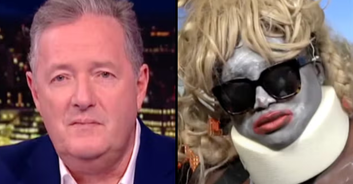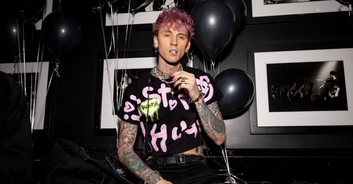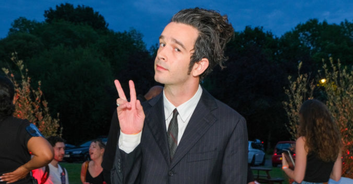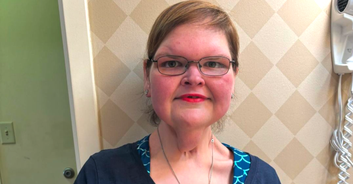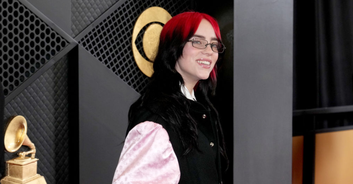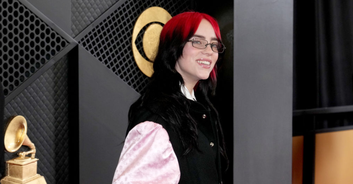'Avengers: Endgame' is notable for many reasons: providing a satisfying ending to a 22-movie story, breaking the record for biggest opening of all time at the US box office, and featuring the first openly gay character in the Marvel Cinematic Universe. You guessed it, 'Grieving Man!' No, he's not a superhero, but he sounds like one, so maybe he should be. His superpower could be crying projectile tears of sulfuric acid!
Five years after Thanos wiped out half out of Earth's population, 'Grieving Man' appears in a support group with Captain America, and describes his date with male pronouns. Director Joe Russo played the character, and explained his decision to Deadline: "It was important to us as we did four of these films, we wanted a gay character somewhere in them. We felt it was important that one of us play him, to ensure the integrity and show it is so important to the filmmakers that one of us is representing that."
On social media, some people appreciated the scene, which depicts the first ever canonical LGBT character in an MCU film. (Yes, Deadpool is pansexual, but he's not in the MCU...yet.) Critics complained the moment of inclusion was too marginal. It's not like anybody's going to cosplay as 'Grieving Man' at Comic-Con.
Twitter users observed that Endgame features "50+ superheroes," but none of them are openly gay. Tessa Thompson, who plays Valkyrie, confirmed her character is bisexual on Twitter, but that has not been confirmed on screen. Thompson told Rolling Stone that they shot a scene of a woman coming out of Valykrie's bedroom for Thor: Ragnarok, but it didn't make the final cut. We've seen straight romances in MCU movies - why not gay romances?
After 20 superhero movies starring men, Marvel finally released a superhero movie starring a woman last March. Captain Marvel, featuring Brie Larson, went on to become a smash hit, earning more than $1 billion worldwide. (In 2017, the DC EU's first female-led superhero movie, Wonder Woman, made $821 million worldwide.) During an episode of Variety's The Big Ticket podcast, spoke about the success:
“I’m happy to be on the forefront of the normalization of this type of content and to prove once again that representation matters. Diverse storytelling matters, the female experience matters, and these are markers... I don’t think we think about that all the time as kids. I think we accept what we have, but to see this new generation of boys and girls, or kids who don’t identify as either, being able to see this on screen and to not know anything different is really exciting."
The host of the podcast, Marc Malkin, shared that he thought he'd never see an LGBT superhero while growing up. Larson, a vocal supporter of diversity, said that thought broke her heart:
"That breaks my heart to hear that, because there’s no reason. I don’t understand how you could think that a certain type of person isn’t allowed to be a superhero. So to me it’s like, we gotta move faster. But I’m always wanting to move faster with this stuff.... It wasn’t enough for me to just look strong on a poster; it needed to extend further than that. I feel like I can’t at the end of the day go to sleep at night if I didn’t do everything that I possibly could."
Last year, Supergirl introduced the first transgender superhero on television.







